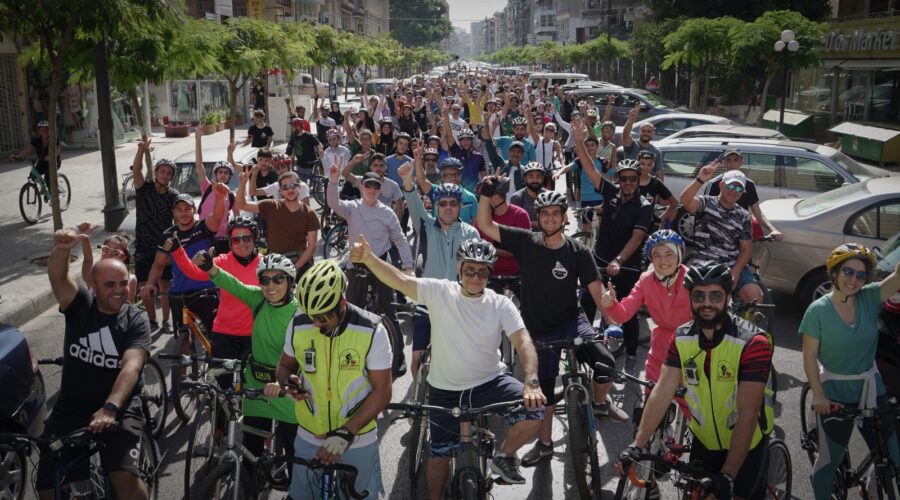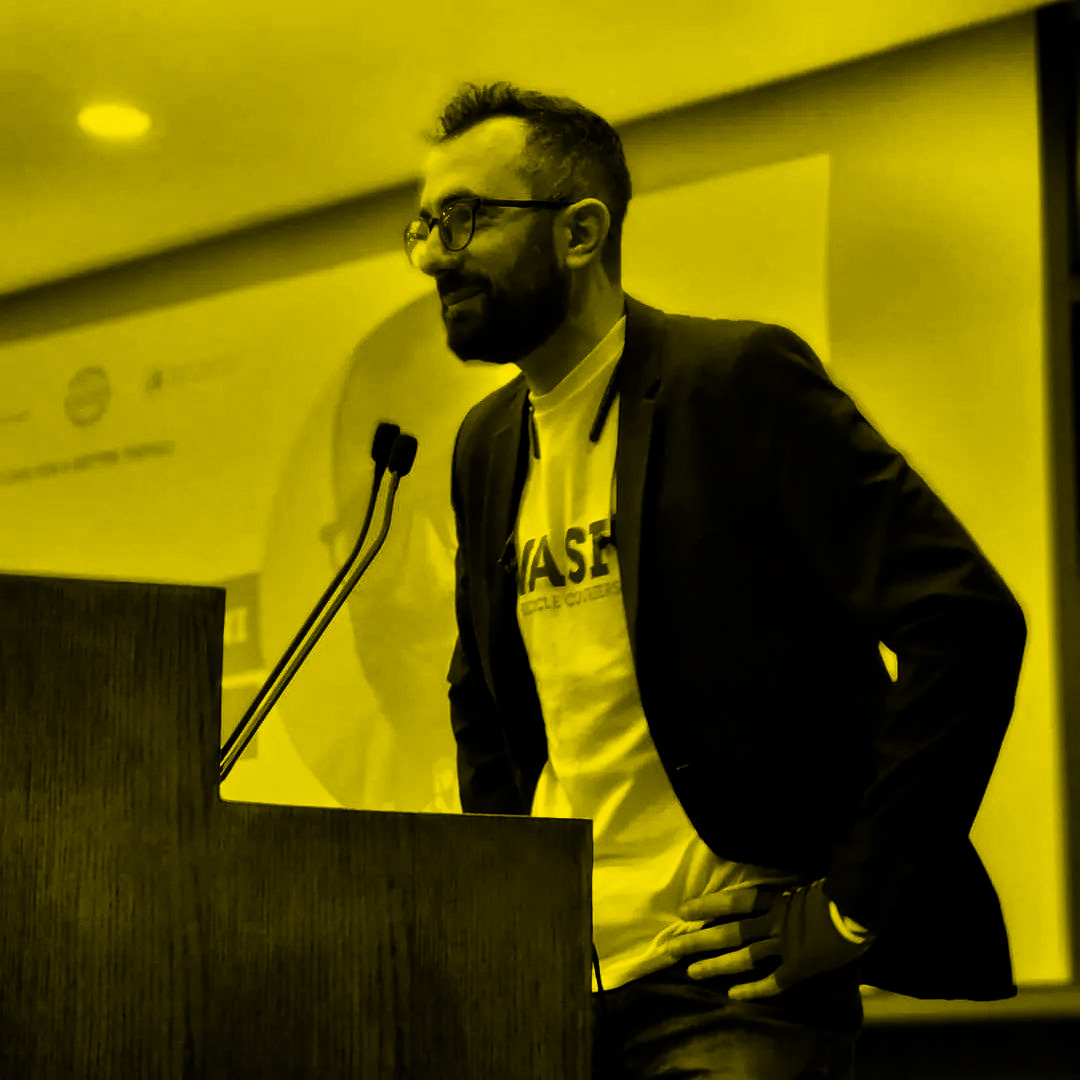Natheer Halawani is the Bicycle Mayor of Tripoli, Lebanon. An engineer by education, he also has a Master’s in Business Administration and has been running his own businesses for the last seven years, including a cycle courier startup and a design and consultancy agency. In this interview, he speaks about the power of solidarity in cycling advocacy, from local to global.
–
Could you tell us about your journey to becoming a Bicycle Mayor?
Before I became the Bicycle Mayor of Tripoli, I was always involved in promoting cycling in Lebanon because of my own personal relationship with bicycles. In 2014, I started a photography project called Eves on Wheels: capturing images of women cycling in Lebanon, and breaking social norms by doing so. In conservative communities, like in Tripoli or Beirut, it’s really hard for women to choose to cycle, let alone commute to work on one. As part of my work as a documentary photographer, I tried to find these women who, thanks to the support they received, were doing just this. These photos became an exhibition that moved around the country and then abroad in Europe and South Africa, and I became known as the guy who promotes cycling.
Later I came across the Bicycle Mayor Network seeing there was a Bicycle Mayor in Beirut, and I thought there should be one in Tripoli so I contacted BYCS. I wasn’t suggesting myself, but a week later I got a response asking if I would like to apply, as BYCS and thought I could do a good job, having heard about me already from the Dutch Embassy with whom I had worked on Eves on Wheels. I didn’t think it should be me, surely someone else, but BYCS said they knew my profile and thought I would be a good fit. In the end, I entered the application process and was picked.
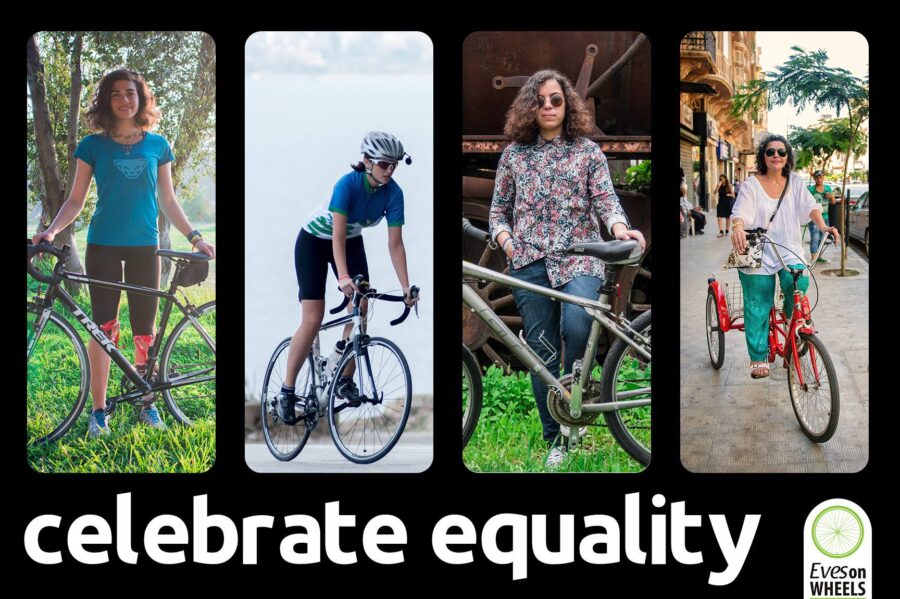
Your process of becoming Bicycle Mayor, and the photography work you’ve done clearly put spotlights on others than yourself. Can you elaborate on your focus on community, and how it aligns with your broader vision for the city?
It’s all about people. The groups and volunteers I’ve worked with have the same view, and coupled with the privilege of having travelled and seen some of the world, we know where we want to get to in terms of what kind of a city we want to live in, and that cycling is a part of that. We’re trying to tell other people that if you ride a bicycle you’re probably going to stop smoking, feel more fit, be kind to the environment and so on. We want to spread this truth to other people.
Tripoli is a car-centric city now but was historically never designed to carry so much traffic. It’s always congested and polluted. On top of that comes the financial catastrophe of everyone losing their money in the banks and not being able to afford essential products, fuel being one. This impacts power stations too leading to outages, to the point that many people have bought generators which is a horrible thing for the city. Now you can’t hang your clothes out to dry without them being covered in black spots.
You’ve been able to create local networks for advocacy and solidarity in Tripoli, partly thanks to ideas exposed to you while travelling. Could you speak on how being connected to Bicycle Mayors around the world has impacted your work?
The trip that was the most memorable for me was to Mexico City with BYCS in 2018. I was able to meet with not only the Bicycle Mayors that I had already spoken with, though never met in person, but I was also able to meet the local cycling activists in Mexico City. I had to pick up my jaw, to be honest. It was a beautifully surprising experience; because not only do these people have to deal with a lot of corruption, like we do here in Lebanon, but they also have the earthquakes and natural disasters that we have to endure as well. I remember them telling me about a major earthquake that reduced a lot of buildings to rubble to the point that ambulances couldn’t get through. They responded by making a makeshift bicycle ambulance system that could enter the demolished neighbourhoods to pick up people, and then drive them out and onto the hospitals.
It’s that sort of exchange that opened my eyes to a lot of things the bicycle can do that I wouldn’t have had without exposure to this international network. I had always thought of the bicycle as a means of transport and sports, but then I realised that the bicycle could be much more.
Projecting this back onto Tripoli I think of the pushcarts that older people use; pushing their merchandise. If they had a cargo bike they wouldn’t have to push anymore with their hands and feet but rather cycle relatively easily. Another project that was brought to Tripoli, inspired by international advocacy, is Bicycle Angels. This is widespread in Latin America, and essentially: experienced cyclists are paired with beginners, taking on the role of an older sibling. They guide newcomers into the world of cycling by commuting with them to work every day and demonstrating bicycle maintenance skills. So you can see that many of our projects are inspired by international initiatives that benefit me and my community. BYCS excels here in its ability to connect Bicycle Mayors and cycling advocates around the world. It can get very lonely and isolating otherwise.
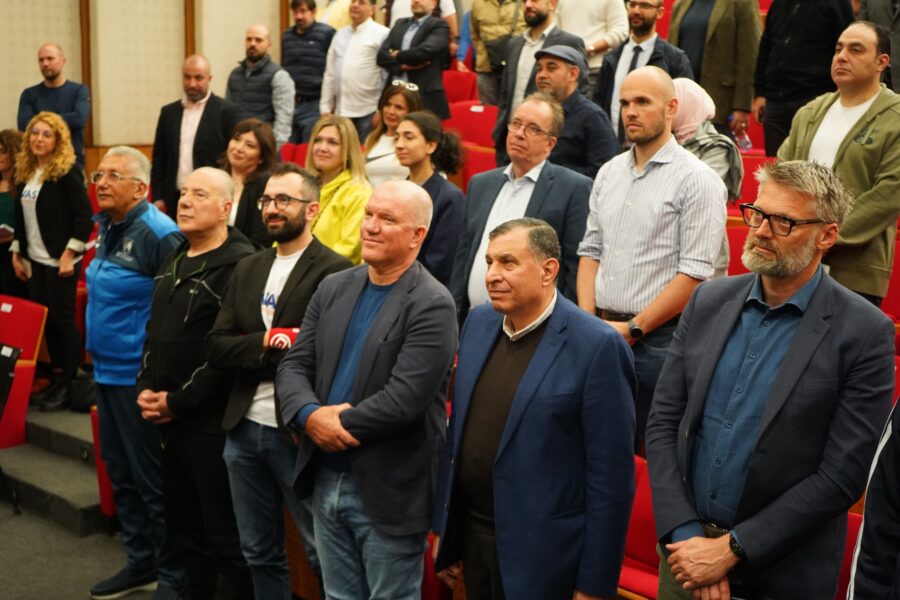
Have you also experienced solidarity in the other direction, where you are able to share your knowledge and support with others?
I have had the opportunity to sit down with many Bicycle Mayors, especially those from Eastern Europe and Africa, to discuss potential initiatives. Don’t get me wrong—I don’t mean any disrespect to Northern European individuals personally—but being able to connect on cycling advocacy with other countries with similar challenges to Lebanon, including many African nations, and Eastern European countries, can be much more valuable. For instance, if you create a bicycle lane in Germany, it will be respected, and people will know how to use it right away. However, if you create a bicycle lane in, let’s say, Bulgaria, Nigeria, or Lebanon, it won’t be treated the same way. So when I had the opportunity to sit down with Bicycle Mayors from those parts of the world we could exchange a lot of thoughts. I shared ideas with them, and I also learned a lot from them.
When I became a Bicycle Mayor, I had a call with Maud [BYCS’ Co-Founder and CEO]. I was excited but also envious of the Indian network of Bicycle Mayors, and how they’ve come together to present a united front in the country, strengthened in their impact thanks to their shared challenge. I thought, “We have 22 Arab countries, and I would be thrilled to sit down with a few people and talk about creating a similar network”. Perhaps in time, we will be able to create the Arab Cycling network and work together, but for now I have full access to a network of global cycling activists that I never really had before.
Beyond just having more Bicycle Mayors, what do you see as the mission/vision as a Bicycle Mayor as part of the network?
You need to understand something about my country, and this applies not only to Lebanon but everywhere. The fact is that people tend to follow trends, and when you make something trendy, it can attract the attention it needs. My goal, aside from normalising cycling—whether it’s for cycling to work or as a means of sports—is to make the bicycle trendy.
With the help of social media and the volunteers supporting me in Tripoli, we’ve made progress, although not as much as I’d hoped. Don’t get me wrong: we did reach a point where the bicycle became a topic of conversation for everyone here. We hosted one of the largest events the city has ever seen. It brought together city officials, the army, and the police, making it a truly significant event.
Making the bicycle trendy is something I’ve been dreaming of, not only in Lebanon but also in different parts of the world. However, I wouldn’t want people to wait until the last moment before deciding to make the shift. This I think is a crucial mission for Bicycle Mayors.
Take, for instance, what happened in Mexico City with the earthquake—it prompted many people to contemplate using a bicycle as the roads were closed. Similarly, here in Lebanon, at the beginning of the Revolution, many roads and major streets were closed due to protests. The roads were blocked, not by people but with sandbags. So, you could still cycle, but you needed to navigate around the sandbags when you encountered them. Interestingly, the bicycle in Tripoli or Lebanon was not a threat to the protesters, unlike a motorcycle or a car, which most definitely wouldn’t be able to pass or cross those sandbags. A bicycle would be able to because, on a bicycle, you’re more exposed; you can’t conceal much, making it less likely to hide a weapon. Additionally, for the police and security forces, when they blocked certain roads to prevent people from mingling during the pandemic, they would allow us cyclists to pass through. To them, it seemed like we could go wherever we wanted because, again, you’re on a bicycle. Of course, we’re talking about individuals on bicycles, not big cycling groups.
So, the bicycle at some point became a necessity, and while I appreciated the shift, what I want is for people to willingly adopt the bicycle because they understand and desire the lifestyle it affords. On the other hand, if necessity is how it’s going to happen, then we have to let it be.
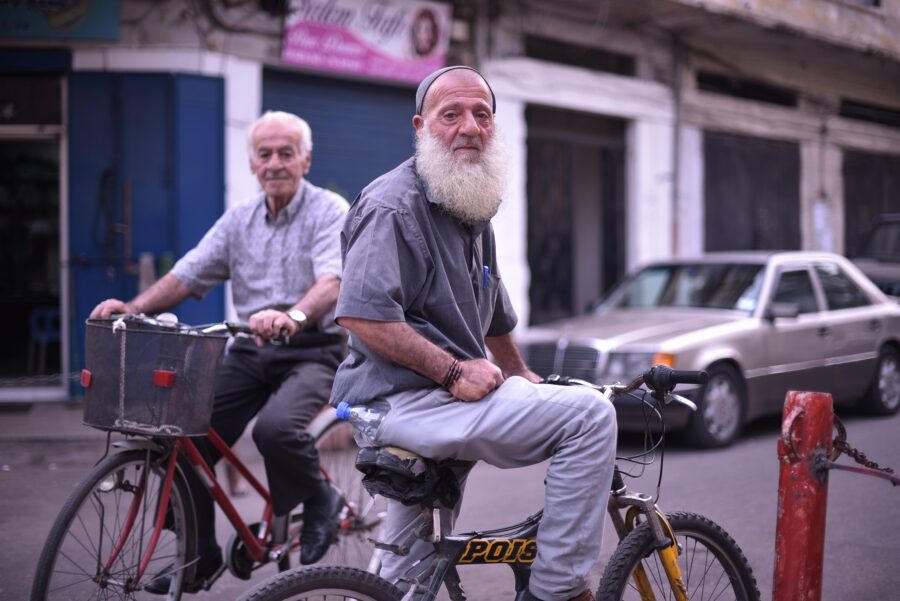
Is there a final message you would like to share to the reader?
I want to speak further on the idea of cycling as a tool for change. I also want to speak on this in a way that connects to all people, and certainly don’t want, just because I’m Lebanese and located a couple hundred kilometres from Palestine, to be a representative of that single struggle. However, I use that as my base for thought as it is my reality.
When looking at the Arab world as a whole, it’s clear that we’re not in the best situation right now. Some countries are doing perfectly well, like UAE and Saudi Arabia, and those oil-rich countries in the GCC. However, the rest of the countries—Syria, Jordan, Lebanon, Palestine, Yemen, and similar nations—up until today, these countries have been through a lot. Syria has been in a 10-year-long civil war, Yemen is facing a similar situation, and Iraq too. Now in the region, there isn’t a full understanding of the potential impact of the bicycle, and I believe the bicycle is not just a means of transportation, cycling, or sports. It’s also a means for peace, progress, and a better way of life. Once you start cycling, for example, you might stop smoking, start recycling, and stop littering. So I see cycling as a microcosm for change that is needed at a macro level.
Of course I’m not saying that the bicycle is a solution to what is happening. Particularly now looking at Palestine. The bicycle is not going to help people avoid death in Palestine—or anywhere in the world with militarised violence— now or even soon. But I do believe that cycling is a way to open minds on a higher, or more intrinsic level. This is something holistic, and global, and applies to someone in India as much as in Canada or Colombia.
The point is that this is about people. Us, you, I, everyone around the world. Once you start cycling your heart becomes softer. It’s not about caring about the bike, but it’s about caring for the people.
